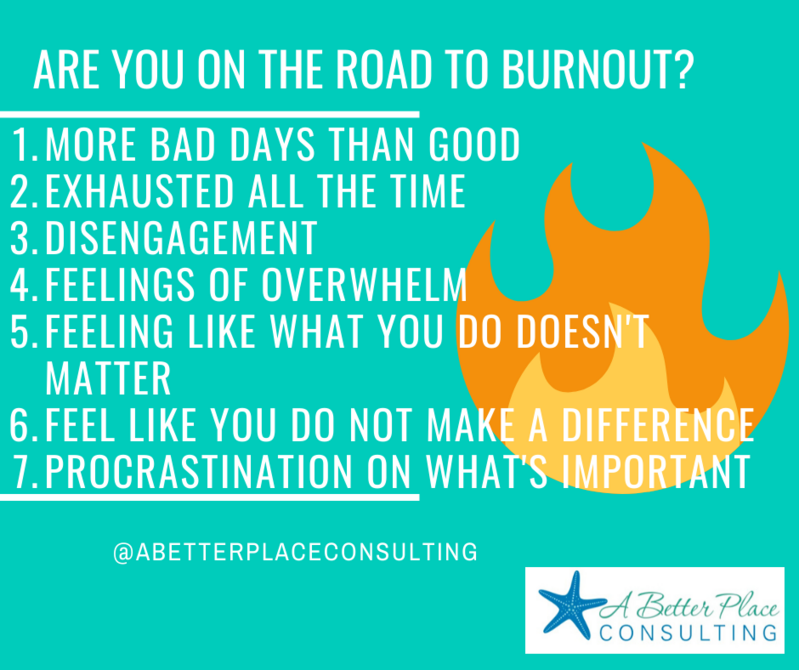 Burnout is when your tank is completely empty. In more clinical terms, it’s when you are experiencing a state of emotional, physical, and mental exhaustion caused by excessive and prolonged stress.
Burnout is when your tank is completely empty. In more clinical terms, it’s when you are experiencing a state of emotional, physical, and mental exhaustion caused by excessive and prolonged stress.
You may have heard someone say “I am totally burned out!” Or you may have experienced this state of being yourself. Sometimes individuals blame it on their jobs, their families, or something else.
The interesting thing about burnout, though, is that only you can control your emotional, mental, and physical stress levels over time.
Just like the military trains their individuals to cope with the prospect of being captured so that they can combat the mental and emotional implications of being a potential POW, you can train yourself to cope with the stresses of your own life.
Where are you in the five stages of burnout? Different sources call them different things, but here is a quick graphic summary with the terms I use, based on my background as a mental health provider.
Let’s talk about each of these a bit more.
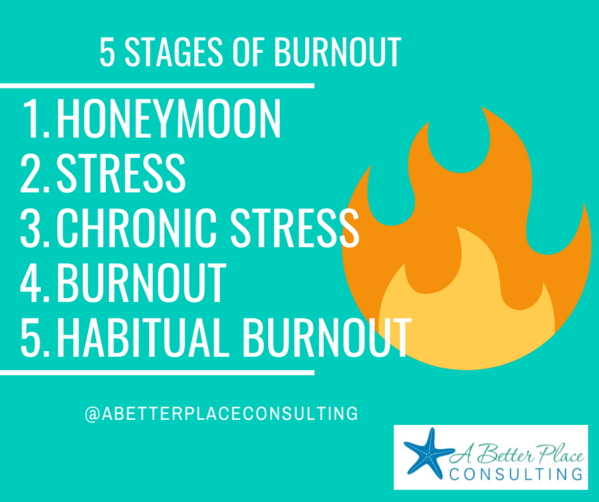 Honeymoon Phase:
Honeymoon Phase:
In this phase, you take on more and more because you are excited about the future. However, in doing so, you overlook practical steps and ignore the likely implications for your life. You find yourself saying, “Yeah, I can do that!” more often than not.
Stress Phase:
Your body starts to respond to the increased demand for mental, physical, and emotional resources by activating your stress response.
When this happens, your body releases a cocktail of chemicals that prepare you for fight or flight. You feel the pressure of your commitments, but you believe you can handle it thanks to your increased chemical capacity and resulting increase in stamina… even though it’s temporary. Your mantra quickly becomes, “This is only temporary,” or “I will just catch up after the kids go to bed.”
I like to think of this stage as a second wind. But it’s important to remember the Stress Phase is only stage 2 of 5.
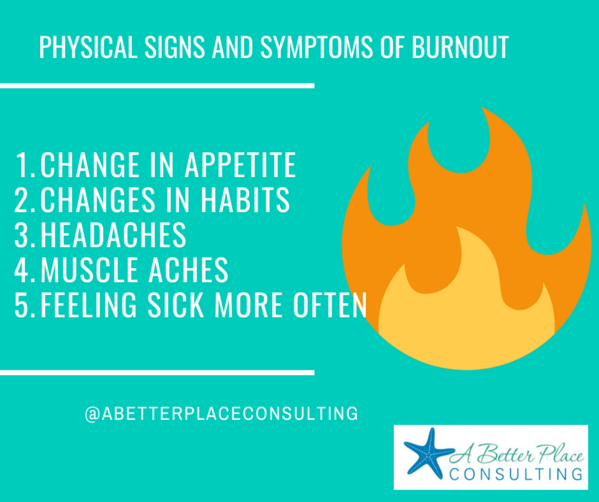 Chronic Stress Phase:
Chronic Stress Phase:
Nothing lasts forever. Now that your body has been in this heightened state of stress for a prolonged period of time, your body and mind begin to fatigue. They are not designed to sustain heightened levels of stress over time without significant periods of rest to recover and restore resources.
With the thought that the stress was temporary, you may have let your diet and exercise habits slide for the sake of getting it all done. Unfortunately, this lack of self-care adds to the nutritional and resource deficiency your body is experiencing.
The feeling that you can handle the stress you’re under is long gone. You experience difficulty concentrating and prioritizing. You find yourself easily frustrated. Little things that used to not bother you suddenly do; you might turn to drugs or food to help you relax.
Think of this stage like your body being hangry for rest, relaxation, and chill time. Your mantra becomes, “Just leave me the f*** alone so I can do my job.”
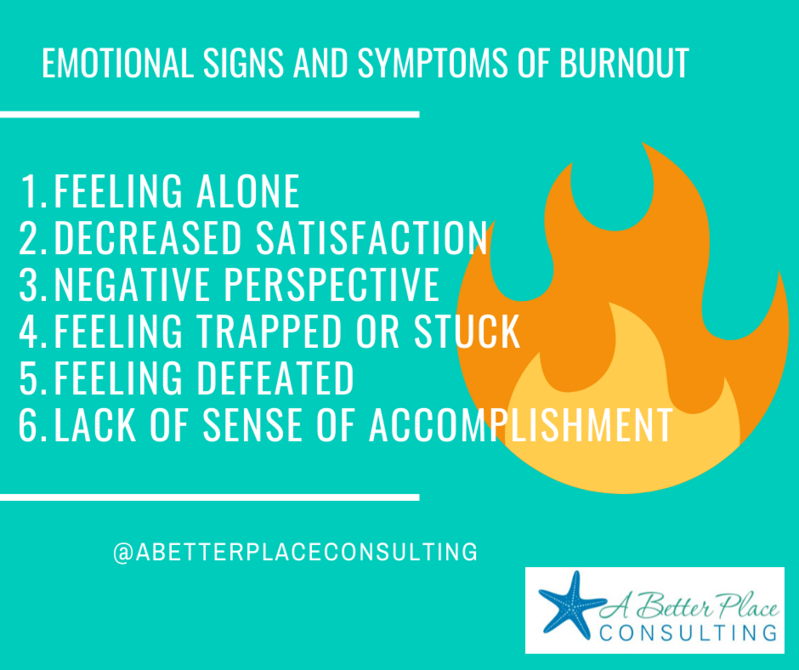 Burnout Phase:
Burnout Phase:
The train has arrived. You are now at stage 4: actual burnout. Prior to this stage, most of your symptoms were emotional and mental. Now physical symptoms begin to rear their ugly heads, too.
When burnout hits, you find yourself facing complete and utter exhaustion on all levels. You may experience more headaches or stomach and GI issues. You might feel too tired for self-care. You avoid social situations (or force yourself to go even though you’re already thinking about ways to make a quick escape). You stop caring about what others think and lose your sense of personal pride. Social isolation and self-doubt leave you in a very dark and lonely place. Even if you do manage to get away from it all for a minute, your mind spirals around all the negative things in your work or home life that cause you stress.
You may finally become aware that the problem is bigger than just a little temporary stress. Your mantra during this time is, “I think I might need help.”
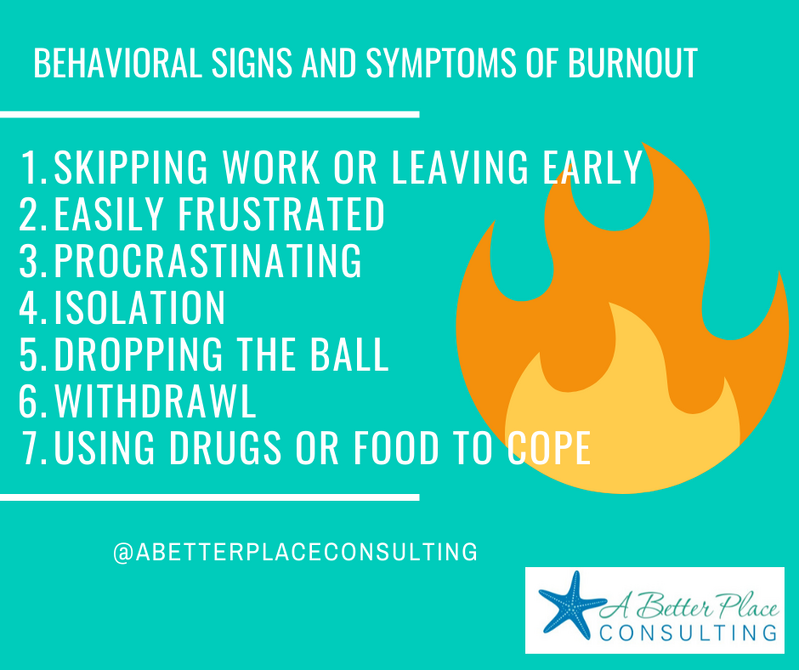 Habitual Burnout Phase:
Habitual Burnout Phase:
They say it takes a person 30 days to develop a new habit. Well, guess what? If you have been experiencing burnout for over 30 days, you’ve already been promoted to the final stage: habitual burnout.
Just as with initial burnout, you’re still exhausted on every single level. However, since you have been distancing yourself from your support network, disregarding your personal care routine, and have shifted away from positive thinking…
You may also experience chronic sadness or depression, chronic physical fatigue, and chronic mental and emotional fatigue.
So… If you are in the final stage of habitual burnout, does that mean there is no hope?
Not in the least.
No matter which stage you find yourself in, there are some simple things that you can do to turn the burnout train around:
- Get more sleep. Sleep allows your brain to wash and cleanse itself, which leads to higher cognitive function and improved memory.
- Eat fresh foods. Try a food plan like Whole 30, which is packed with fruits and veggies to give your body plenty of nutrients.
- Connect with positive social support networks. Steer clear of negative Nancy (sorry to all the Nancys out there). Instead, look for people who see the world in a positive light and who are ready to chat about the future instead of complain.
- Try some mindfulness, like meditation. For tools and support, you can check out my favorite app, Headspace.
- Get outside and go for a walk. Being in the sunshine releases chemicals that make our brain happy. And even if it’s not sunny, exercise does the same thing.
- Know that it is possible to pull yourself out of a burnout situation, though it may be more complicated if you have experienced burnout or trauma before. Speak with a mental health professional, or ask your company what resources they provide. If you’re lucky enough to work for a company who retains a Business Therapist like me, help may be much closer than you think.
If your organization does not already offer business therapy for team members, and you need help, ask them if they will start providing this resource! Now is the time for companies to keep teams happy and healthy by lowering stress levels as much as possible.
Is burnout a challenge you face? If so, be honest with yourself, and reach out for the help you deserve. I believe the world needs you to make this planet a better place for all of us!
Also be on the lookout for an upcoming video series on BURNOUT on our YouTube Channel!
